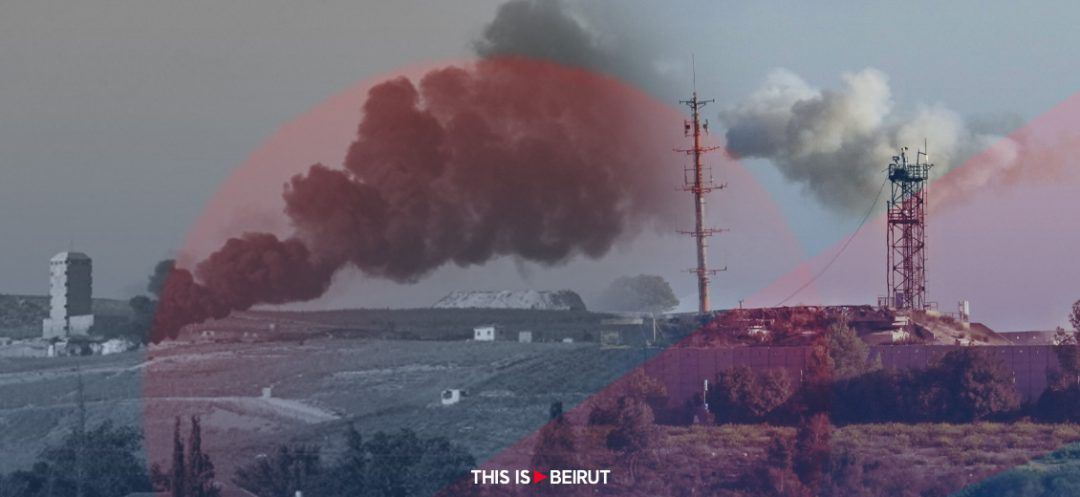
In societies, it is customary to find two categories of people or entities: builders and destroyers. Generally, this distinction tends to be nuanced and subject to debate. But not in our case.
Here, everything is clear. There is a category that we take pride in when we see them inaugurate a hotel, a factory, or a business — essentially creating wealth. Then there is another category that destroys wealth. Hezbollah belongs to the latter, even leading the pack and serving as a role model for similar entities.
Hezbollah has become a recognized specialist in destruction. Just as there are specialists in geology, hydrology, or pulmonology, there are also "destructologists" — a newly coined term that we hope the Webster will include it in its next edition.
A destructologist is not the same as a mere destroyer; it is a higher level — a concept that has both theoretical and practical aspects, a true specialty that requires significant effort and expertise. Not just anyone can be a destructologist. Their expertise is recognized by their infallible technique and their ability to seize or create opportunities for destruction.
A Gaza-Israel conflict is perfect for this purpose, as emulating it in southern Lebanon allows for the destruction of lives, homes, businesses, and agricultural lands — a veritable nirvana, aided by a few Captagon pills. It wasn't always this easy.
Our specialist has a well-documented resumé of destruction: internal and external wars, assassinations, an explosion, and political crises. Since at least 2004, there has never been a need for them to claim unemployment benefits. This has a devastating economic impact, with waves of destruction affecting almost everyone in society. Just as created wealth eventually benefits everyone, the destruction of wealth ultimately affects everyone.
In the end, it doesn't matter much who has the money, as long as it exists and circulates. Ideally, there should be minimal inequality, not just for moral reasons but also for economic ones: ten people each having $100,000 is better than one person having $1 million. But having that million exist and grow is better than it being blown up by a drone. This loss is not just for the millionaire but for society as a whole.
In a normal state, that million can benefit others, depending on how it is used. Roughly, the million in question will first be taxed, which should be used for the common good. The rest will either be invested in a project, employing dozens of people, or deposited in a bank, which will use it to lend to dozens of clients, thereby boosting the economy in both cases.
Conversely, in the case of the million’s destruction, it is the same population that will suffer, as is happening daily now.
But there is worse. The destruction of lives and property is one thing, and the destruction of hope and trust is another. Unfortunately, we are on the path to achieving both simultaneously. Thus, Hezbollah can also be labeled as a "trusticide," another newly created term — our esteemed Mister Webster will have a lot to consider in the next edition.
A trusticide, as the etymology suggests, is the systematic practice of killing trust and confidence. We'll consider just one current indicator: the proliferation of advertisements on social media for real estate investments in Larnaca, Athens, Dubai, Paris, or Batumi (Georgia). Apparently, the interest was so high that these promoters have escalated to organizing live presentations in Beirut’s luxury hotels.
Conversely, other ads are flooding social media for the sale of real estate in Lebanon at 50% or 60% of their original value. Apartments, including furniture, are being sold off, as if chronically announcing an impending expatriation. Or else, to expatriate money into housing in some Batumi, which few had heard of and didn't even know the location of just days ago. Finding hope elsewhere is what counts, sometimes with the bonus of a "European residence permit." Emptying the country is another Hezbollah fantasy.
Let’s conclude with one of those expressions that always surface amid a human, economic, or national tragedy: "These are unavoidable collateral damages, but our objective and cause are entirely legitimate."
But oh, how many crimes and mass destructions have been committed in history in the name of these collateral damages!
Read more




Comments